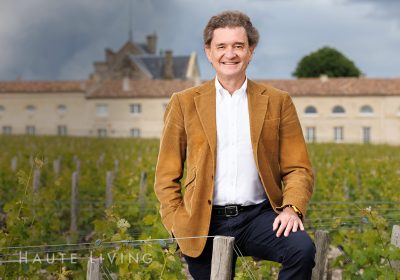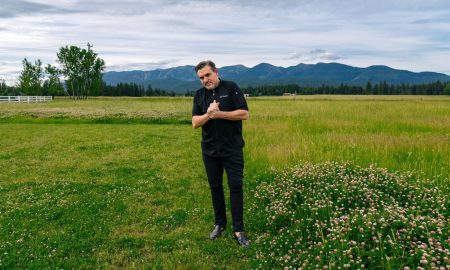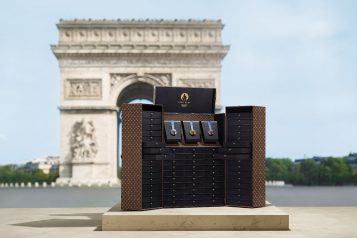HL: Have you always possessed a passion for protecting the environment? When and how did it develop?
TCS: I have felt a responsibility to give something back from the very beginning. When we see and visit with people whose cultures are relatively unchanged, we learn from them, and hopefully understand them better. The more people we understand, the more tolerant and accepting of other peoples and cultures we become. And from there, all kinds of good things can happen. So if these remote cultures and people do this for us, enriching our lives, doesn’t fairness say we owe them something in return? That is how I got interested. In Cambodia about five years ago, our agent asked me if I would be interested in helping to build a school in a very remote area. I was attracted to the concept immediately, because there had never been a school in that area. It is one of the most rewarding things I have ever done, seeing hundreds of happy kids going to their first day of school. Of course they are very poor, and we decided to provide a nutritious lunch every day, and then to have communal gardens for growing vegetables, our own aquaculture pond for raising our own fish. This way they can all contribute to producing the food for themselves and their families. It doesn’t do much good to educate people if they do not have enough to eat. So education and nutrition are now working together. Fresh water wells were the next project, as most diseases are caused by consumption of contaminated water. This initial project has grown to five schools now built in very remote areas of Cambodia, many water wells and fish farms and gardens, and an upgrading of the education at the schools. In addition, I have developed a “micro-loan and micro-gifting” program to needy people (mostly single parent mothers) in Vietnam, Cambodia, and Indonesia. I think so far we have about 100 families affected by this program. The schools have affected perhaps an additional 800 families. The clean water has been installed in villages with several hundred families. It is small, but it is a start, and we can see the results. When people give to big organizations, too much is spent on overhead and administration. We operate primarily with volunteers, and we know that 100 percent of the funding gets to a real person who need it. 
HL: What are some of your favorite places in the world to travel and why?
TCS: I love Southeast Asia, especially Vietnam and Cambodia. The people are so kind, the culture so rich, and don’t even start me on the cuisine in Vietnam! I also love Japan. The politeness of the Japanese to their guests is remarkable. This is a great culture, and a country of intelligence, cleanliness, and humility especially in the smaller places. Of course there are exceptions in the modern cities, but Japan is one of the safest, kindest places on earth for the western traveler. Easter Island and Mongolia will always be special places to me. They are so unique, rewarding, and unforgettable. 

HL: What are some of your favorite or most outrageous travel memories/stories?
TCS: On my first trip to Japan, I got on a ferry out of the port of Kobe on a ship with no other westerners. A group of Japanese students “adopted” me and we had a great time communicating the best we could. A newly married Japanese couple was going to the same tiny island called Shodoshima (I chose it at random, because I could not read any of the signs), and insisted on helping me find a place to stay, sightseeing with me, and having meals together. They spoke no English, I spoke no Japanese (at the time…I am learning now). I will never forget this kindness and hospitality, and that was in 1970. I remember everything as if it was yesterday.
HL: I understand that the Around the World trip is one of the most popular choices. Give a brief description of it in your own words and what makes it so enticing.
TCS: Being able to see the great sites and cultures of the world in safety and comfort offers people the chance for a lot of enrichment in a relatively short time. Because you are flying non-stop direct to places that normally take a long time for third world airlines to get to. Will people take a week or two to visit a single place like Easter Island or Mongolia or New Guinea? Most will not, and the effort and expense to get there is very high. But to travel with a smallish group on a private jet with its safety and comfort, not to mention the world class authorities that accompany to lecture along the way so we understand what we see, well, that offers a tremendous value to people in terms of enrichment and time. 





















